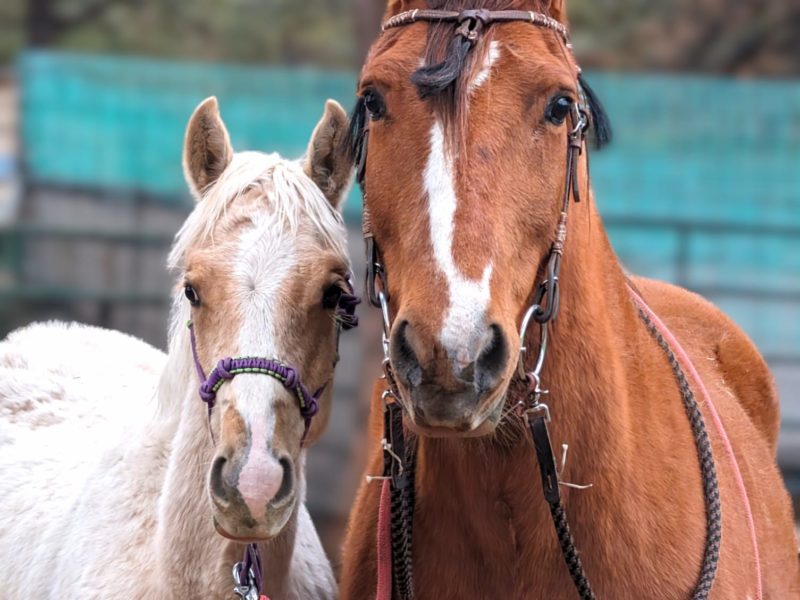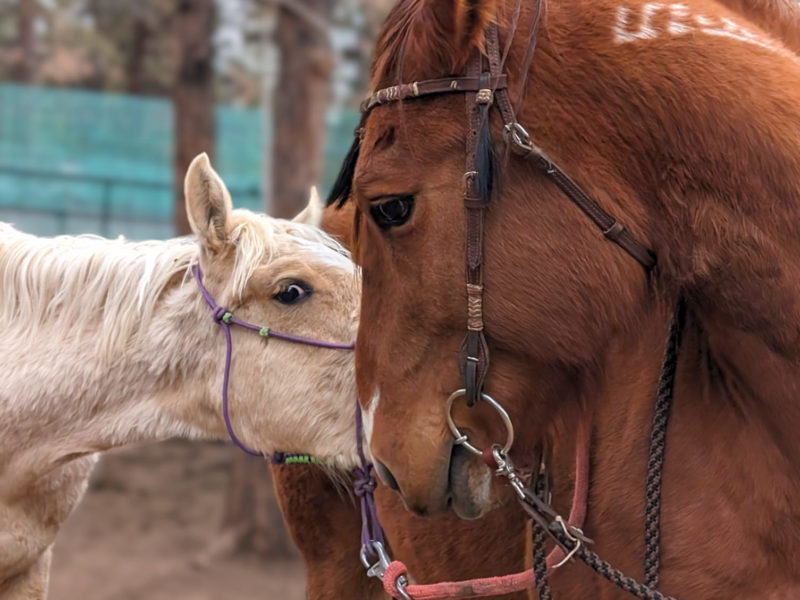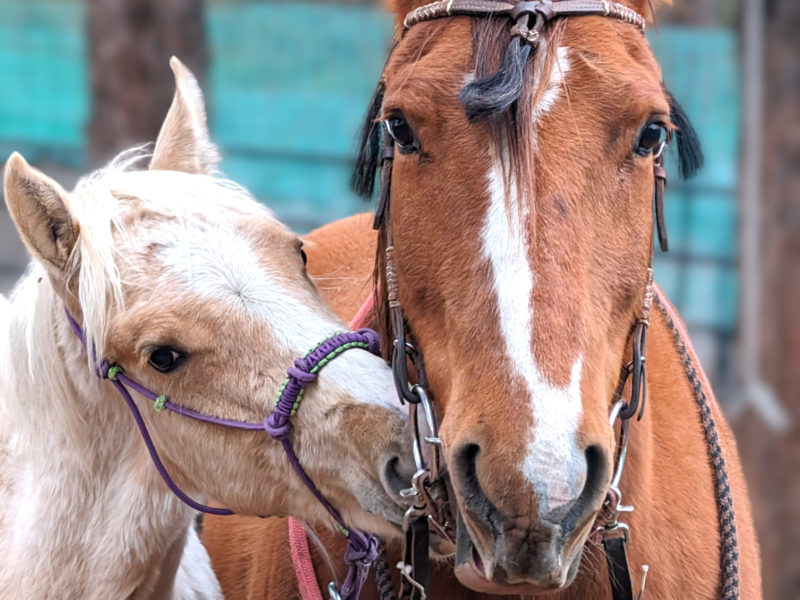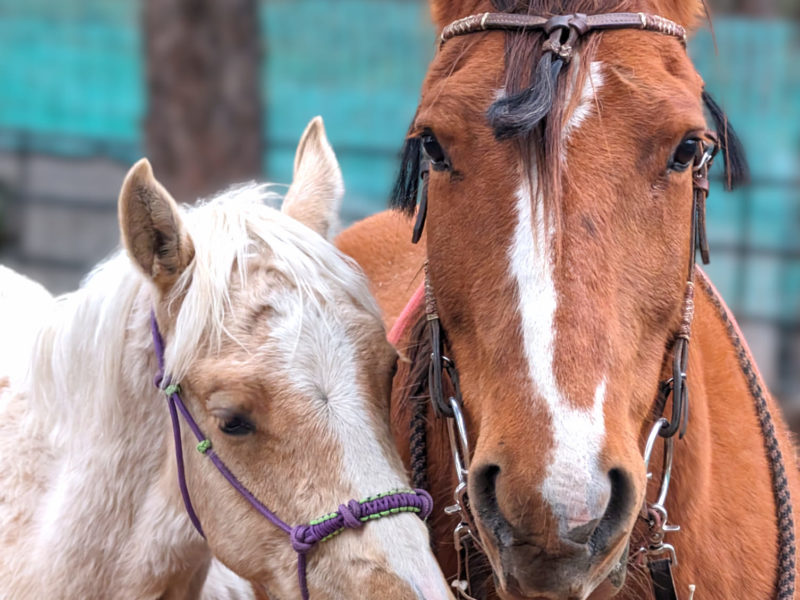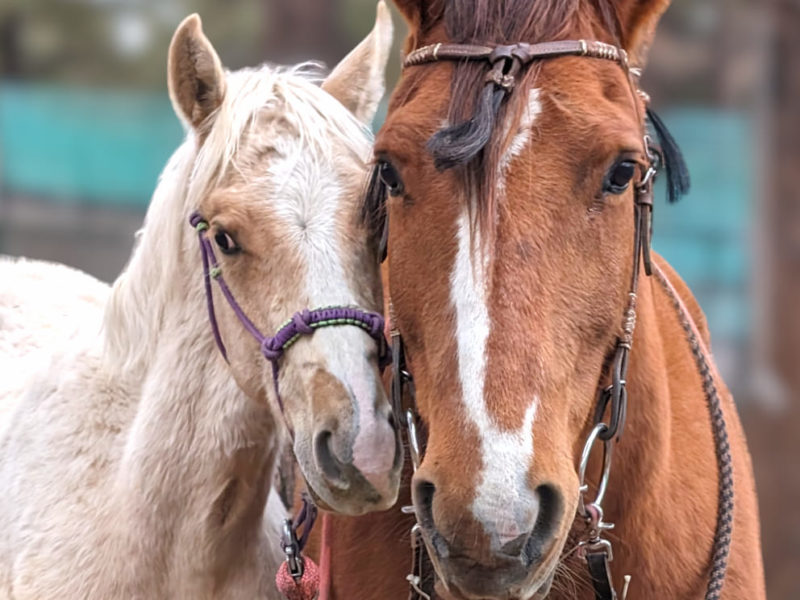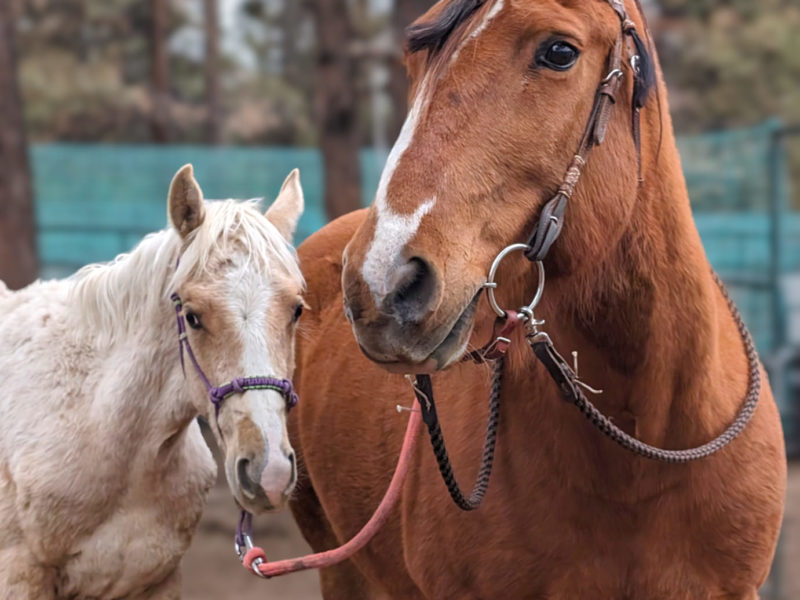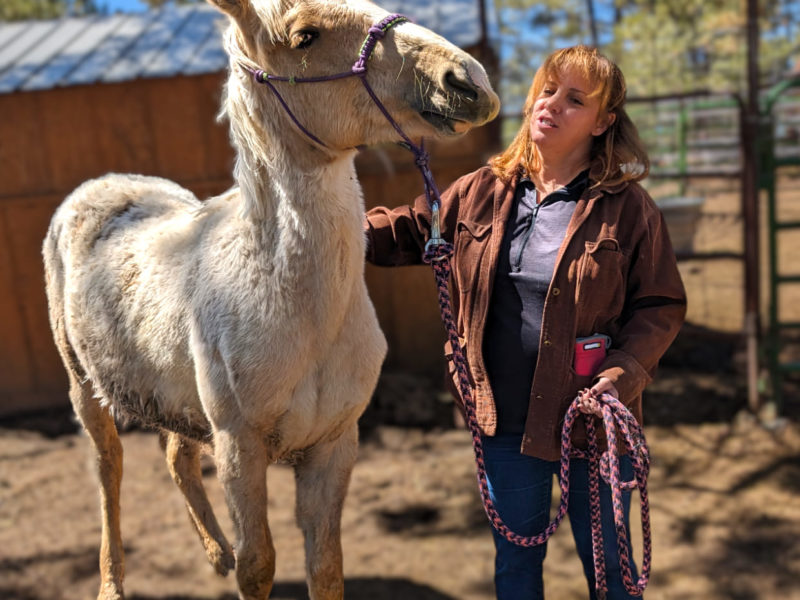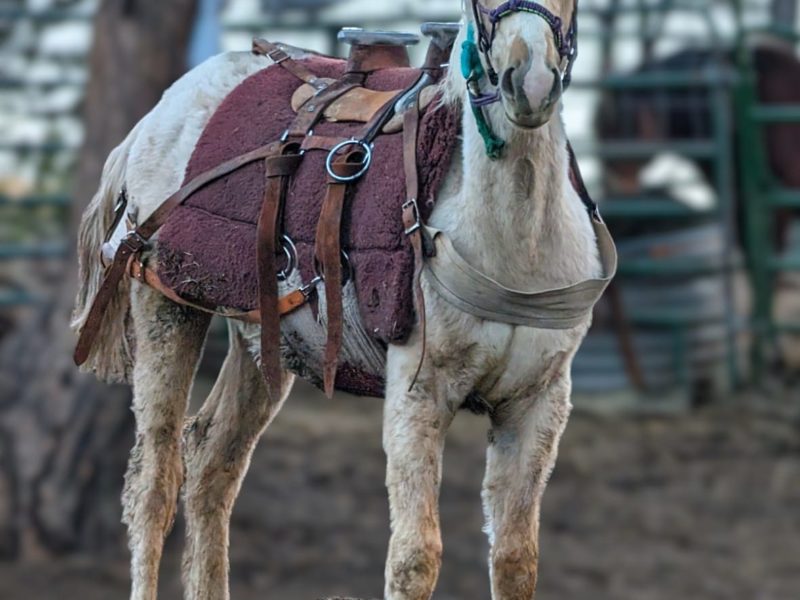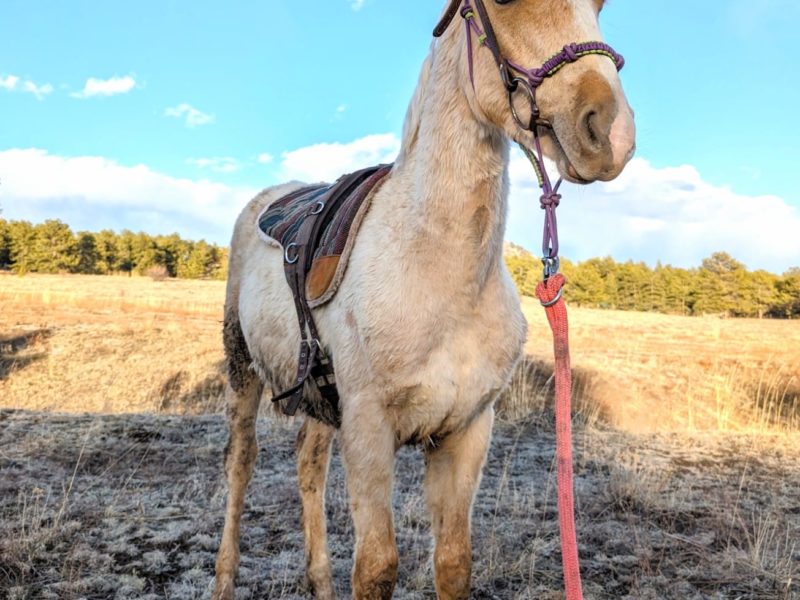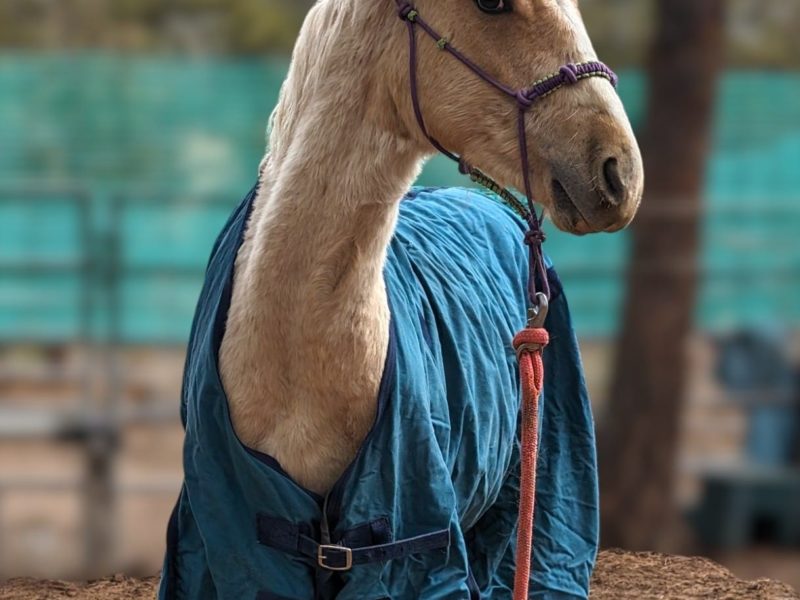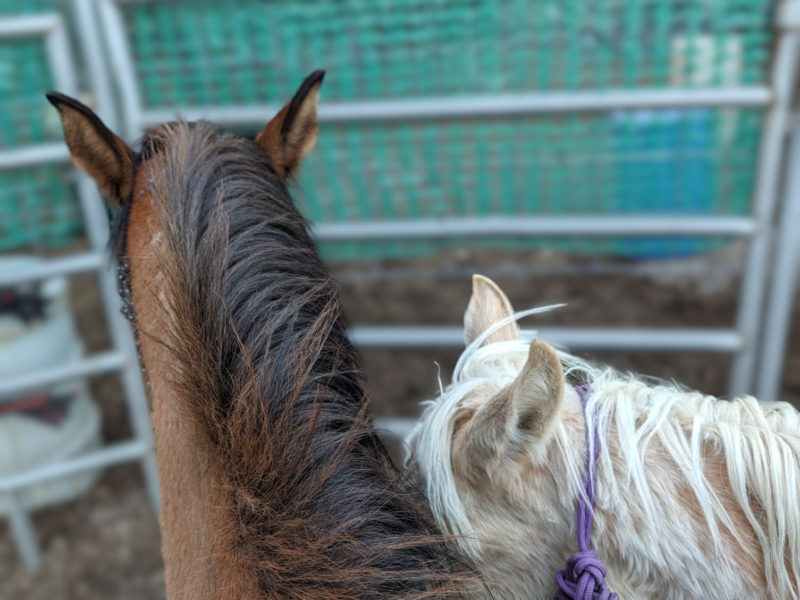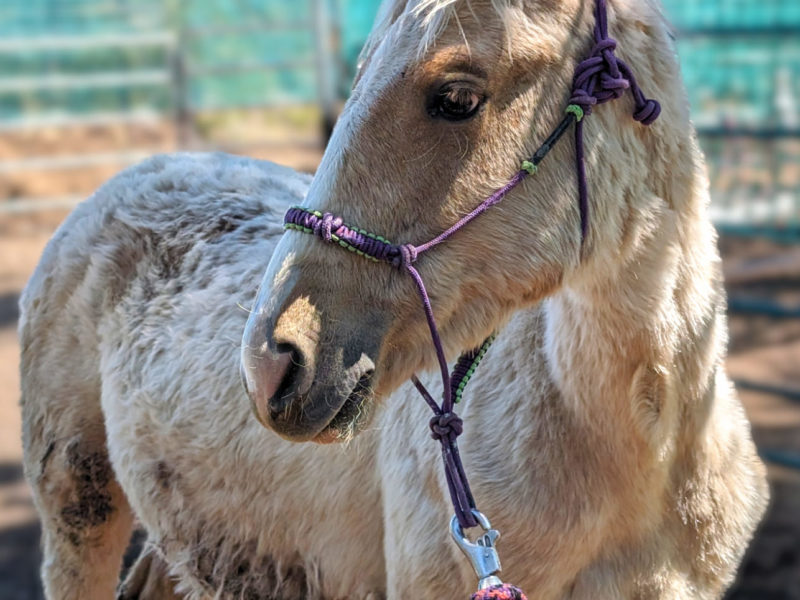The stars of this post are Buddy, yearling Mustang gelding born in holding to a Triple B NV mare, and Wild Horse Outreach & Advocacy Ambassador Mustang gelding Tiny from Salt Wells WY who’s so quirky that he’s lucky he’s cute.
Here Buddy is asking Tiny not to hurt him and to help him feel safe. Tiny obliged, then I ponied tiny Buddy off of not so tiny Tiny.
Tiny has taught me acceptance, to appreciate him for who he is and not get hung up on what he isn’t. That has created a greater sense of peace for both of us.
Buddy just finished 30 days of kindergarten and elementary school with us. His adopter won him in the IA and then sent him here, with the goal of getting him to where a domestic baby his age would be by the time he went home, for a seamless transition into his new herd and every day life. As he gets older, Buddy will be exploring the Rocky Mountains with his human. We’re super excited for them.
If you feel like looking at all the pictures in this post, you’ll see some of what the previously unhandled little guy learned during his time here, in addition to the obvious, i.e. catch and halter, lead and load, lunge, send, cross obstacles, pick up feet and tie.
Tay suggested I should write a post normalizing asking for help. I agree, that’s super important and yes, it seems like such a taboo topic sometimes, in this world full of influencers and self proclaimed experts that’ll happily attack people from the comfort of their living room couch, in between doing laundry and watching episodes of My Little Pony.
I ask for help all the time. I have mentors in many areas in my life including working with Mustangs. I’m always reading, watching, listening to something worthwhile to learn more.
I do this every day, have for years, and there’s a whole lot more that I don’t know yet than what I do know. The beautiful thing is that today I’m much less clueless than I was a few years ago and a little less clueless than even yesterday.
Asking for help doesn’t have to mean sending your Mustang off for training. Not everyone can, wants or needs to do that.
If you do send them off, we encourage you to participate in your wild one’s education as much as possible.
If you don’t, whatever you do, please for the love of all that is holy and for the sake of your horse and your own safety, kill the monster while it’s little.
No, the monster is – hopefully – not your horse. It’s the behavior that if it increases or persists is going to be a problem. That means asking early, ideally before something becomes habituated and now your horse needs to unlearn it while it learns a safer, better, more desirable behavior.
AA teaches that the definition of insanity is doing the same thing over and over, and expecting a different outcome. Applied to gentling Mustangs that means if the tools in your toolbox aren’t working for you and your horse in a certain area, it’s time to go get more/different tools!
Just like with home improvement projects, cooking, gardening, those tools may cost money. Mustangs may be relatively cheap to come by, but just like with any other hobby, animal or thing you choose to bring into your life, there is work and there are expenses associated with them.
Mustangs are only so forgiving. That’s something many of us, myself included, learned the hard way. I’ve seen plenty that were so far gone, it took months to get them turned around, and a number of them never did. Yes, pain, toxic plants, and other things that occurred in the wild or are part of a horse’s genetic makeup all play a part. But so does training, or the lack thereof.
If you have a problem, ask early.
Be discerning where and whom you ask. For example, I don’t waste my time answering people’s well meaning questions in Facebook groups anymore. Why should I ? There are 40 keyboard warriors with a Breyer horse collection already giving all sorts of questionable advice.
If you choose to ask your questions in a place like that, please use your judgement, check your sources and if it’s still not working, ask somewhere else.
Training often isn’t linear. Your (wild) horse goes through stages in their cognitive and physical development and well into maturity that causes them to behave in ways you may not have encountered before. New behaviors may emerge or they may seemingly forget things they previously knew and did well.
The need to ask for help may – and should – stretch well past the gentling process. I recently discovered Lacy’s left lead isn’t very strong, so I went and asked for help with that.
Pride. We all face that struggle. I take pride in some things and I’m not proud of others. Most importantly, I’m not too proud to ask for advice, sometimes for the seemingly silliest, most embarrassing little things. My friends can attest to that ![]() It beats struggling quietly, and so what someone now knows that I didn’t know how to sew a button back on a shirt
It beats struggling quietly, and so what someone now knows that I didn’t know how to sew a button back on a shirt ![]()
Asking for help keeps Mustangs safe, it keeps them off of dinner plates and out of crammed dirty feedlots and crowded semi trailers that transport them to a sad ending. No, there’s not enough sanctuary space for every Mustang that’s ever flunked out of training or its home.
The ones that have the physical and mental capability to be a safe, dependable and happy partner to a human deserve that chance, and they deserve humans that are willing to learn, to grow and to invest time and yes, sometimes money or elbow grease in exchange for learning, into that process. And a rewarding process it is.
That’s it from me for today. If you know of someone who needs to hear this, please share this post. If you have experiences you’d like to share where you asked for help or helped someone else along, I’d love to hear them in the comments.
Training halters, lead ropes and reins: Rowdy’s Ropes

